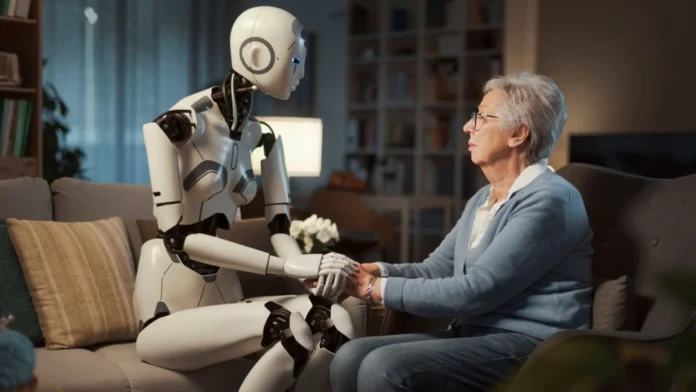In an era where loneliness is increasingly recognized as a significant health risk, the emergence of robotic companions offers a promising solution to mitigate the effects of social isolation. This article explores how these advanced technologies are bridging the gap in social interaction, particularly for individuals who find themselves isolated due to various circumstances such as age, disability, or geographic location.
Understanding the Rise of Robotic Companions
The concept of robotic companions isn’t new, but recent advancements in artificial intelligence (AI) and robotics have propelled this technology to the forefront of solutions for combating loneliness. These robots are designed not only to interact with humans in a meaningful way but also to provide companionship that feels genuine and comforting.
Technical Innovations: Modern robotic companions are equipped with sophisticated AI, enabling them to understand and respond to human emotions. They can engage in conversation, remember personal details, adapt their behavior based on interaction, and even express empathy—a leap in technology that promises new avenues for human-robot interaction.
User-Friendly Interfaces: Companies have focused on making these robots more user-friendly, ensuring that they are accessible to people of all ages and tech-savviness. This includes simple voice commands and touch interfaces that make interaction seamless and enjoyable.
The Impact on Social Health
The impact of robotic companions on social health is profound, especially among populations that are prone to isolation.
Elderly Care: For seniors, these robots can offer reminders for medication, assist with daily tasks, and provide a source of interaction that helps keep their minds active and engaged. For many, these robots become a part of their daily lives, offering a consistent presence that helps combat the loneliness that many elderly individuals experience.
Support for Disabled Individuals: People with disabilities can benefit significantly from robotic companions. These robots can be tailored to assist with specific needs, provide emotional support, and offer a level of independence that might not be possible otherwise.
Mental Health: Beyond physical support, the psychological benefits of having a robotic companion are significant. They can help reduce feelings of depression and anxiety by providing social interaction and a sense of connection.
Real-World Applications and Success Stories
Across the globe, various implementations of robotic companions have shown positive outcomes, underscoring their potential in real-world applications.
Japan’s Robotic Pets: In Japan, robotic pets have been used for over a decade to help soothe elderly patients in nursing homes. These robots mimic the behavior of animals, providing the comfort and companionship of a pet without the responsibilities and allergens associated with real animals.
Therapeutic Robots in Hospitals: Hospitals in several countries are now using robots to interact with children undergoing long-term treatments. These robots play games, engage in conversations, and help children cope with the stress and loneliness of hospital stays.
Challenges and Ethical Considerations
Despite their benefits, the integration of robotic companions into everyday life brings several challenges and ethical considerations.
Privacy Concerns: As these robots collect and process personal data to function effectively, there are valid concerns about privacy and data security. Ensuring that these devices are safe from breaches and that the data is handled responsibly is paramount.
Human Dependency: There is an ongoing debate about the extent to which reliance on robots for social interaction is healthy. Critics argue that it might lead to further social isolation or reduce human-to-human interactions.
Ethical Use: The development and deployment of robotic companions must be guided by ethical principles to ensure that these technologies are used to enhance lives without manipulation or harm.
Conclusion
Robotic companions represent a significant breakthrough in the use of technology to address the challenges of social isolation. As we advance, it is crucial to balance innovation with ethical considerations and focus on the enhancement of human life. With careful management, the future of robotic companions looks promising, poised to offer valuable support to those in need of social interaction.





